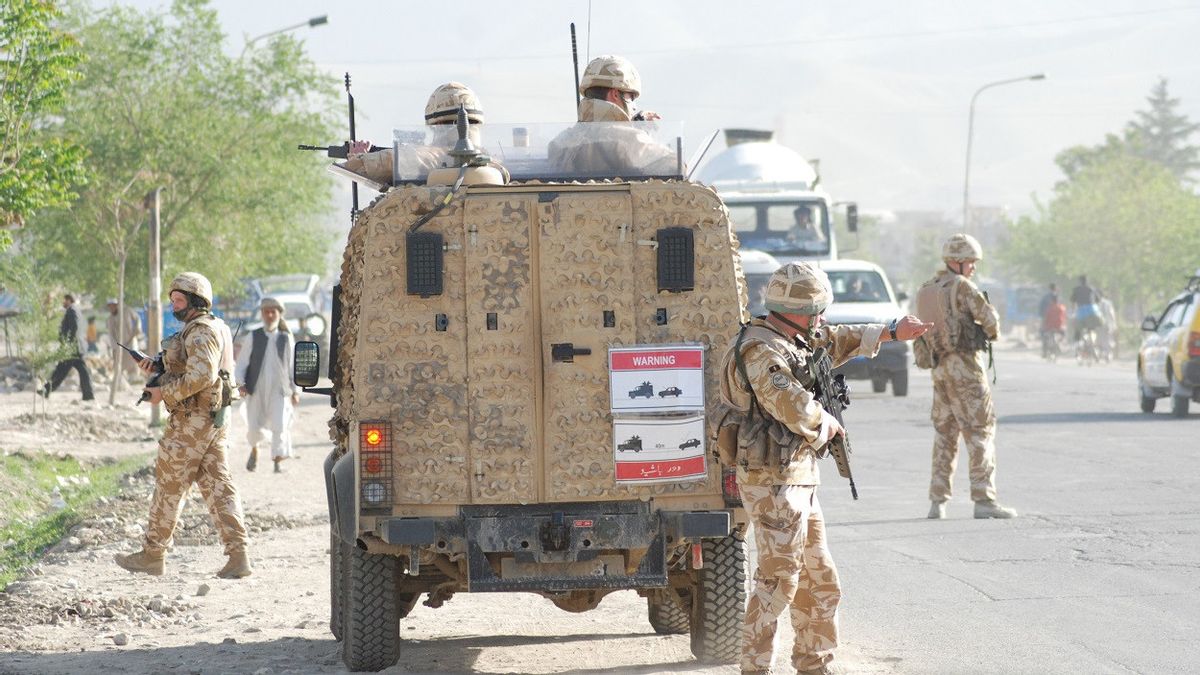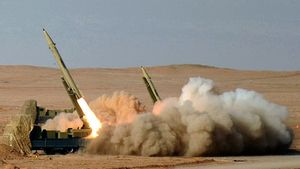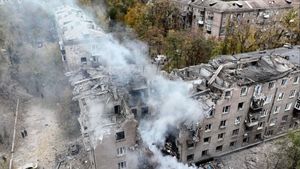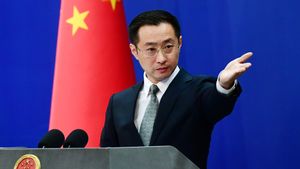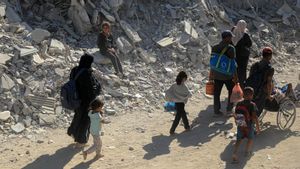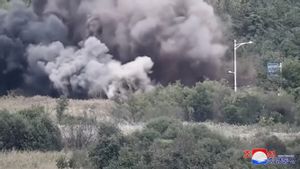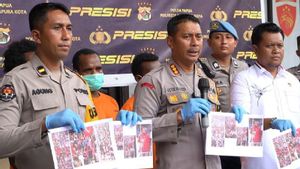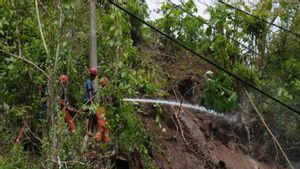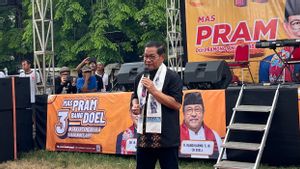JAKARTA - Operations carried out by Britain's elite SAS (Special Air Service Regiment) in Afghanistan have allegedly repeatedly killed prisoners and unarmed men under suspicious circumstances, according to a BBC investigation.
Newly obtained military reports suggest one unit may have unlawfully killed 54 people in one six-month tour.
The BBC found evidence showing the former special forces chief failed to provide evidence for the murder investigation. Meanwhile, the Defense Ministry said British troops were "serving with courage and professionalism in Afghanistan".
The BBC understands that General Sir Mark Carleton-Smith, former head of British Special Forces, was briefed on the alleged extrajudicial killings but did not provide evidence to the Royal Military Police (RMP), even after the RMP had started an investigation into killings by SAS troops, quoted 12 July.
General Carleton-Smith, who later became chief of the Army before stepping down last month, declined to comment on this story.
BBC Panorama analyzed hundreds of pages of SAS operational accounts, including reports covering more than a dozen 'kill or capture' raids carried out by an SAS squadron in Helmand in 2010-11
People who served with the SAS squadron on the deployment told the BBC they witnessed SAS operations kill unarmed people during night raids.

They also said seeing operations using so-called 'dropped guns', AK-47s planted at the scene to justify killing unarmed people.
Several people who served with special forces said that SAS squadrons competed with each other for the most kills, and that squadrons researched by the BBC were trying to achieve higher body counts than they replaced.
Internal emails show that officers at the highest levels of the special forces were aware of concerns over possible extrajudicial killings, but failed to report the suspicions to military police despite a legal obligation to do so.
Meanwhile, the Ministry of Defense (MOD) said it could not comment on the specific allegations, but refusing to comment should not be considered an acceptance of the factual accuracy of the allegations.
A MOD spokesman said British troops "served with courage and professionalism" in Afghanistan and held "the highest standards".
In 2019, the BBC and the Sunday Times investigated an SAS attack that led to a British court case and an order for the UK Secretary of Defense to disclose documents outlining the government's handling of the case.

For this latest investigation, the BBC analyzed a recently obtained operational report detailing the SAS report on night raids. We found a very similar pattern of reports of Afghan men shot dead because they pulled AK-47 rifles or hand grenades from behind curtains or other furniture after being detained.
On November 29, 2010, the squadron killed a man who had been detained and was brought back into a building, where he "attempted to attack the troops with a grenade".
Then on January 15, 2011, the squadron killed a man who had been detained and brought back into a building, where he "reached behind the mattress, pulled out a hand grenade, and attempted to throw it".
Next on February 7, the squadron killed a detainee they said had "attempted to carry out a rifle patrol". The same justification was given for the fatal shootings of prisoners on February 9 and February 13.
And on February 16, the squadron killed two prisoners after one pulled a grenade “from behind the curtain” and the other “took an AK-47 from behind a desk”.
A senior officer working at UK Special Forces headquarters told the BBC there were "real concerns" over the squadron's report.
"Too many people were killed in the night raids and the explanations made no sense. Once someone was detained they shouldn't have died. Because it happened over and over again, causing concern at headquarters. It was clear at the time that something was wrong."

Internal emails from that time indicate that officers reacted with disbelief to the reports, describing them as "absolutely extraordinary" and referring to the squadron's "latest massacre". An operations officer emailed a colleague to say that "for the 10th time in the last two weeks" the squadron had sent a prisoner back to a building "and he reappeared with an AK".
As concerns rose, one of the country's highest-ranking special forces officers warned in a classified memo that there could be a "deliberate policy" of extrajudicial killings in operations.
Senior leadership became so concerned that formal reviews were rarely conducted of squadron tactics. But when a special forces officer is deployed to Afghanistan to interview personnel from the squadron, he seems to take the SAS version of events for granted.
The BBC understands that the officer did not visit the site of the raid or interview witnesses outside the military. Court documents show that the final report was signed by the commander of the SAS unit responsible for the suspicious killings.
To note, SAS squadrons were allowed to be re-deployed into Afghanistan in 2012 for another six-month tour.
When the Royal Military Police launched a murder investigation in 2013 into one of the raids made on that tour, special forces director General Carleton-Smith did not disclose to the RMP any prior concerns about extrajudicial killings, or any tactical review.
The English, Chinese, Japanese, Arabic, and French versions are automatically generated by the AI. So there may still be inaccuracies in translating, please always see Indonesian as our main language. (system supported by DigitalSiber.id)
